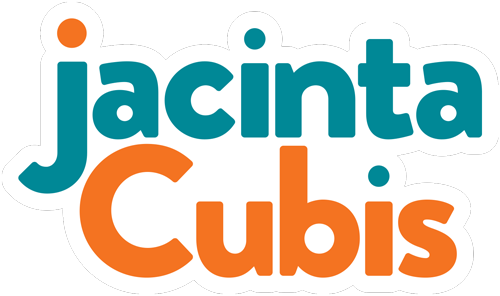Authentic connection
Ever been flummoxed by feedback?
My Acknowledgement of Country (AoC) didn’t go down well in a recent workshop. I was told that the group found it tokenistic. They only do an AoC if there are Blackfellas* in the room. Putting aside the question, how would you know if there are? the feedback raised a lot of questions for me.
Has anyone in my network ever had a similar reaction?
Why do I do an AoC?
What could I have done differently?
I went in search of answers.
Why do an AoC
An AoC is part and parcel of any workshop I facilitate. I do it because it is important to pay my respect to traditional peoples and places. The current Minister for Indigenous Australians, Linda Burney, said in 2020:
If you're an Aboriginal person sitting in the audience during an acknowledgment it says something very loudly — that you are respected and recognised." (Radio National, 18 Mar 2020)
As a friend said when I told her about the feedback, ‘if you choose to work with Jacinta, you get an AoC’. I see it as a simple way of keeping reconciliation in Australia as part of my ‘every day’.
I try not to recite the standard AoC script. I try to find something from the landscape to connect with or a word from the language of the First Peoples of the area. It’s more meaningful if I integrate the AoC into the topic for our workshop, so that it’s not just an isolated protocol at the start.
More often, I invite someone in the group to do an AoC. After a few seconds of surprised silence, someone will clear their throat and begin to offer a few words. Some use the standard script, but most say something spontaneous and heartfelt, like Cathy did at a recent workshop. She talked about the local park being a significant meeting place for the traditional peoples and linked this elegantly to the gathering of her colleagues for an important discussion.
I think my invitation also helps to shift the power from the facilitator or host to the participants, signalling that it’s their conversation.
But the AoC clearly came as a surprise to the group who gave me the feedback at the start of this article.
🤔 Perhaps I need to be more explicit about my practice, like a colleague who asks her hosts, ‘would you like to do the AoC or shall I?’ I didn’t make that invitation – instead I made an assumption.
Connect to people and place
In seeking answers to the questions above, it struck me that almost every day, I try to connect to my breath, the space and the people around me in my yoga practice. Connecting in this way helps me to feel grounded on my mat. I’m not always successful, but I try all the same.
I also need to feel grounded when I’m facilitating and I connect to my breath, people and place to get this feeling. If I’m not grounded, there’s a risk that I may just go through the motions, like I’m on auto-pilot. I won’t serve the group as well.
🤔I wonder if it might be helpful for me to share some of this explanation about why I connect to people and place with groups. Nobody walked out in protest at my workshop but if I’d talked about ‘why’ I connect to people and place — because it makes me a better facilitator — there may have been more acceptance and understanding.
Unlike my workshop participants, One Nation Senator Pauline Hanson walked out of Parliament on the 27 July in protest at the AoC, saying that it divided Australians.
Rhys Paddic and Emma Gibbons of Acknowledge This! wrote an open letter in response to her walk out. They didn’t want to convince Hanson that AoCs should be done, rather, they wanted to encourage her to:
‘…consider what most Australians know, that there is value and honour in taking a moment in acknowledging our collective communities and history.’
Rhys and Emma see, ‘AoCs as an opportunity to spark interest in our traditional custodians with the wider Australian community.’
I spoke with Rhys about the feedback on my AoC. We talked about the AoC script and how it loses its impact when it’s repeated by ten speakers, one after the other, at the same event. Rhys calls this the ‘domino effect’. There’s an element of ‘should’ and we stick to the script. But repetition can risk AoCs becoming procedural.
That script is not written in stone. The contemporary AoC has been around for about 25 years, gaining traction in the 1990s, coined the ‘decade of reconciliation’ by then Prime Minister Paul Keating. How we acknowledge Country is up to us. To paraphrase Rhys, drop the script. Do it in a way that’s authentic for you.
Rhys was extremely generous with his time and knowledge. You’ll find links below to Acknowledge This!, their training, and their letter to Hanson.
While it came as a surprise, the original feedback on my AoC triggered some good questions and great conversations.
I’d love to hear if and how you pay respects to First Nations Peoples at the start of your gatherings. Just comment below or drop me a line Jacinta@jacintacubis.com.
* My search for answers unearthed a huge range of advice on language and terminology in regards to First Nations Peoples in Australia, some of it contradictory. But the common thread was ‘respect’. I hope I’m respectful, but this article may cause offence. Rather than pretend I know, I hope someone with expertise and knowledge will let me know where I can do better.
Links:
AcknowledgeThis!
Acknowledge This! letter to Aunty Senator Hanson
Acknowledge This! training
How the Acknowledgment of Country became a core national custom — and why it matters, ABC Radio National Joey Watson, 18 Mar 2020
What country am I on
Aboriginal culture apps
Creative Spirits


